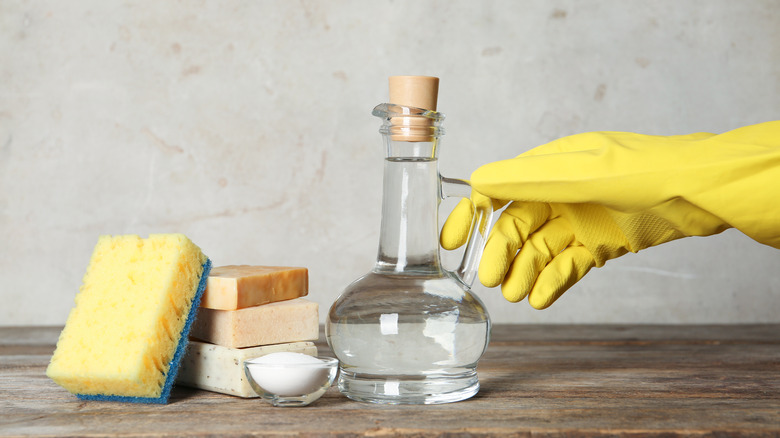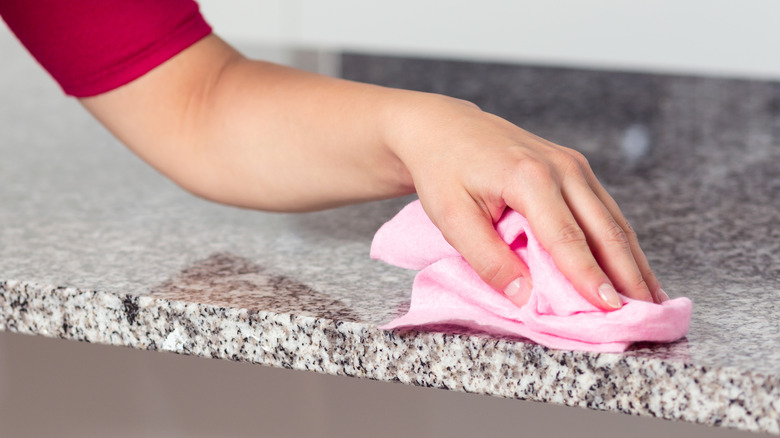Why It's A Bad Idea To Use Vinegar On Granite Countertops
Beautiful countertops are one of the first things many people notice when entering a kitchen. Whether they're looking to buy a new home for themselves, attending a dinner party at a friend's, or gathering for a holiday meal with family, the countertops are the backdrop to any great spread. According to a Houzz kitchen trends survey, countertops are the most popular way to upgrade a kitchen and people naturally tend to splurge on this very visible part of a home.
Granite and quartz lead the way in countertop popularity and definitely add a level of sophistication to the typical meal-prep space. Naturally, taking good care of the stone is key to keeping granite countertops shiny, durable, and attractive for years to come, so it's important to pick the right products for the job. Vinegar is a classic home cleaning option as it's generally affordable, all-purpose, and non-toxic. It's the perfect tool to help kill bacteria, and can also help eliminate mineral deposits found near kitchen and bathroom sinks (via healthline). But as wonderful as vinegar is, it really isn't the best option when it comes to cleaning granite countertops.
It's as simple as soap and water
Since granite is porous it can actually absorb liquids if it isn't sealed properly and should be resealed anywhere from every few months to every few years, depending on factors such as the color of the stone, how you clean it, and even the type of sealant used, per Arch City Granite & Marble, Inc. While great for killing germs, according to HGTV vinegar's acetic acid can weaken the sealant and dull granite's gorgeous appearance. The best way to keep granite looking great and lasting for years is to use dish soap and a sponge (one without an abrasive pad, which could scratch the surface) to clean your countertops.
Of course, there's bound to come a time when plain old soap and water just aren't cutting it. Things like wine, oils, and even cosmetics can leave a noticeable calling card behind on your granite countertops. Luckily for the accident-prone out there, Eagle Stones explains you can take care of most of these mishaps on your own. When it comes to organic stains (beets, coffee, etc.) that can easily take shape in a kitchen, a mixture of diluted hydrogen peroxide and a little ammonia should do the trick. If you're trying to clean mold and mildew stains, there are a few products to choose from designed specifically for that task. Just be careful using any cleaning solution that contains bleach to rid granite of blemishes, as this can risk damage to your countertops.

